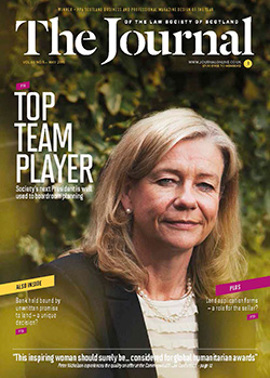The "TER approach"

In the past few articles we have looked at the set of skills new lawyers are gathering through use of technology, and at tips for using the digital world to enhance your legal toolkit. Next we turn to how these skills are starting to be used in law firms, both through emerging roles such as mine – legal process engineer – and in standard legal roles in existing firms.
What kind of new approaches to legal practice have emerged?
I like to call these three strands the “TER approach”:
T – the way we Think about legal practice;
E – the way we Evaluate our practices;
R – the way we Re-engineer our practices.
Some firms are brave enough to acknowledge the value in addressing these key areas and are starting to sit up, listen and tinker with their systems and processes in-house. Is this the best way, randomly looking at items on an ad hoc basis using the people in place at the time?
Solicitors, associates and even managing partners are having time taken away from billable hours to dip in
and out of a whole new area of practice that they are not trained for nor have any guidance in. At Inksters, our founder and managing partner Brian Inkster recognised these three elements as important enough to remove that “tinkering” and replace it with a dedicated legal process engineer, aka Me.
So what does a legal process engineer do using the TER approach?
Thinking. Legal process engineering adopts a holistic approach to the firm’s legal practice, harnessing the power of the whole team. By identifying core values in our aims and objectives of who we are, what we identify with and our clients’ needs, we can march forward using the skills and experience of the whole team. We set definable and measurable goals to which the legal process engineer works with close supervision by the managing partner.
Evaluating. In every law firm there are thousands of processes, from the very simple, such as ensuring there is always tea and coffee for client meetings, right through to a lengthy commercial transaction or litigation. The important part of any system of change is to evaluate current practice. This is a time-consuming element of legal process engineering and some might not see the immediate rewards, but without identifying what you do now, you cannot determine whether it can be improved. Socrates famously said that the unexamined life is not worth living. I would apply this to every practice and process in a law firm. By evaluating how you do everything, you can make considered choices as to how best to improve that particular area.
OK, I can hear you say, surely anyone can do this – it doesn’t take a lawyer? That is exactly the reason why a legal process engineer makes sense. If you are evaluating all of your practices across the board, you need to consider the cost to your firm of carrying out this exercise. You need to consider that, while it may be cost effective to have a senior partner spending time evaluating one of the more complex areas, does it make sense to have them spend time on the simpler areas?
By engaging a legally trained legal process engineer, all levels of work practice are evaluated at the same rate and in the same way. Applying a legal mind to varied processes fills the gap that a non-legal business manager cannot.
Re-engineering. The essence of this part of the TER approach is not acting hastily. One change in one area of practice has an effect on many stakeholders and therefore must be done carefully. By considering the aims and objectives of a process and how best it can be improved, the legal engineer works with the team, restructuring the process to bring it up to date. Changes can be implemented to integrate technology into a process.
In next month’s article we will look at identifying legal processes within your firm. What are processes, how do you identify them and what do you do then?
In this issue
- Sham marriages v Sham interviews: which is the greater evil?
- A trusts law for the modern era?
- When cash just isn't good enough
- Un voyage en vaut la peine*: SYLA does France
- SYLA ends season on a high
- Appreciation: John Henderson
- Reading for pleasure
- Opinion: Mohammed Sabir
- Book reviews
- Profile
- President's column
- People on the move
- Application forms: should the seller adjust?
- When sharing matters
- After the launch
- Game of strategies
- Broken promises
- Charity legacies: the 10% conundrum
- Another "Whose money?" case
- Barrister barred
- Rearranging the family ties
- Belief in the system
- Living by the code
- The sky's the limit
- Unfinished business
- Law reform roundup
- Appreciation: Joseph Beltrami
- LBTT: what does it mean in practice?
- For those of a certain age
- Claims: trending?
- Ask Ash
- A man for all reasons
- The "TER approach"






